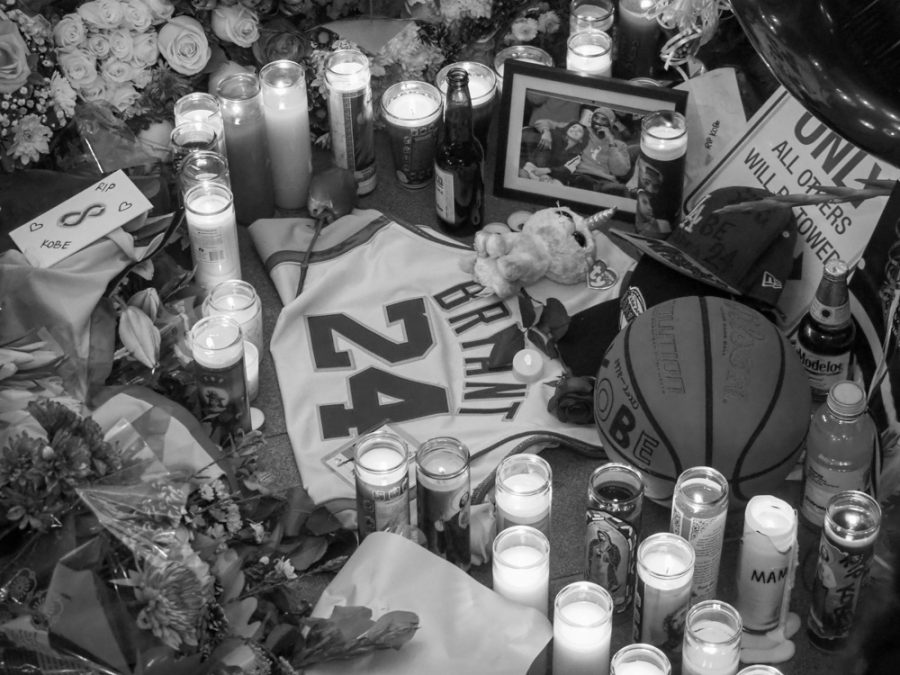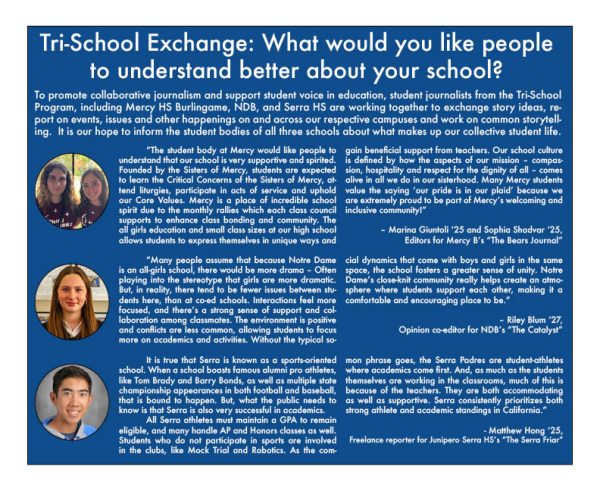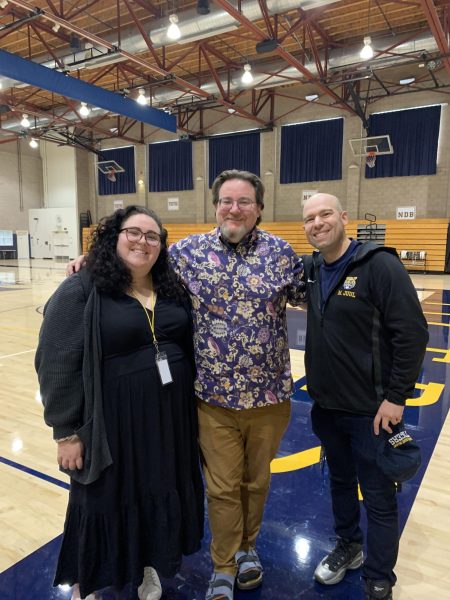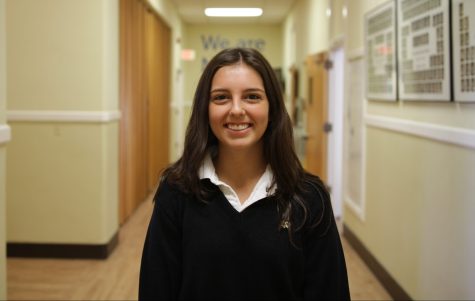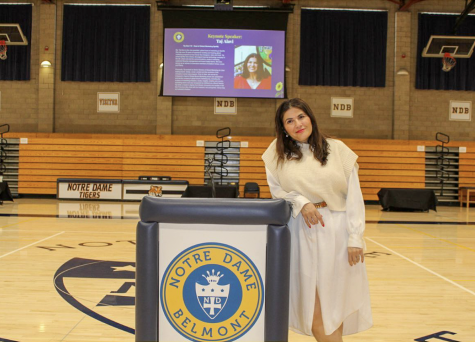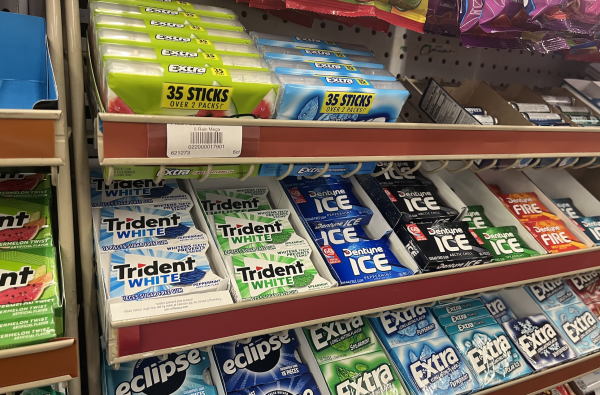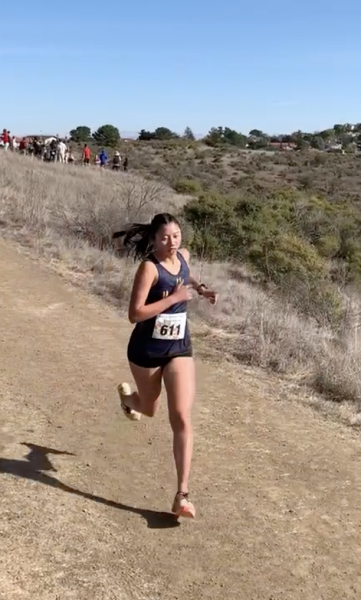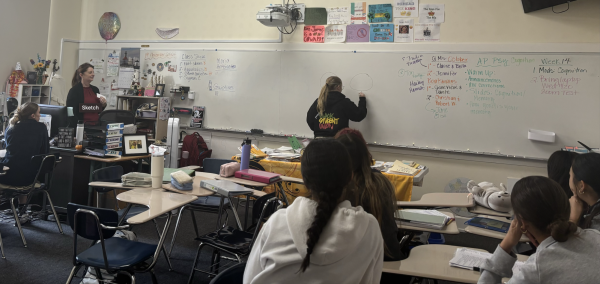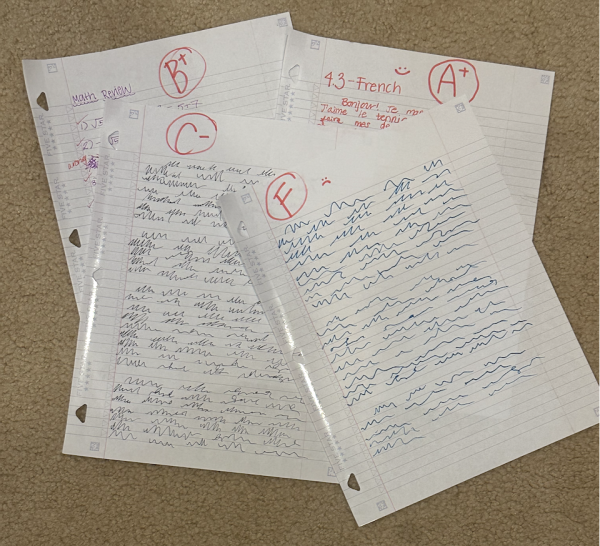The death of Kobe Bryant: Our generation’s “Where were you?” moment
It was around 11:30 in the morning on Sunday, January 26 when I first heard about the helicopter crash that killed Kobe Bryant. I was sitting at the nail salon with two of my friends. One was scrolling through social media when she read the news and immediately turned to tell us. I picked up my phone, scrolled through my Instagram, Snapchat, and Twitter, and saw the same thing posted everywhere.
I then texted my family and told them. First, they responded in shock. Then, we all started to share the theories we had heard about the accident.
Possibly about thirty minutes later, I looked up and the sports channel on the TV in that salon took a hiatus from a Superbowl story to make a “special report” on the accident. In the hours and days following, more details were released. These came with grief, mourning, and sadness from fans.
Kobe Bryant was a basketball icon, one of the best. Because of this, many knew who he was and what he stood for. Many worked to emulate his skills on the court. So, when he suddenly died, this connection that a lot of people felt with him, was tested. And they were left feeling shattered.
All of this, the stories and videos I have seen on the media have made me ask myself, “Is this going to be my generation’s defining death?” Each generation has at least one famous event that resonates so deeply with people that they can remember where they were on that day in the years to come. Will future generations ask us where we were when Kobe Bryant died just as we asked former generations about their idols?
When US President John Fitzgerald Kennedy, or JFK, was assassinated, my grandma was 15 years old. She had been excused to go to the bathroom at her private Catholic school in San Francisco and was washing her hands when an announcement started. She remembers looking at herself in the bathroom mirror and crying immediately. She was caught completely off guard and walked silently back to her classroom, where they were later dismissed.
NDB Student Services Coordinator Barbara Tauskey remembers sitting at a bar talking to a friend who happened to be the bartender when the TV’s volume was suddenly turned up. Everyone came and huddled around the bar to watch as the TV announced that former Beatle John Lennon was being rushed to the hospital after being shot. Shortly after, it was stated that he had passed.
My parents distinctly remember what was happening when the space shuttle Challenger took off and then blew up. They were both watching in their classrooms. They were high school freshmen, and their teachers were excited to watch it because one of the astronauts was a high school social studies teacher, Christa McAuliffe. They sat in awe as it took off and then in horror when the disaster occurred.
My millennial cousins were getting ready for school when their TV was suddenly taken over by the news of the 9/11 terrorist attack. One of them, a sixth-grader at the time, remembers her dad had the TV on and started shouting, so she ran into the room. He was in shock, repeating that terrorists had done it. And then, they watched the south tower of the World Trade Center get hit by a plane. She remembers being confused because she had no idea what a terrorist was, thought her dad meant tourists and didn’t understand why tourists would do that. Then, she and her brother went to school and learned more about what a terrorist was before school was canceled for the day, and they went back home.
These events, the deaths of famous icons, sit with people. They become a part of their lives, a moment never to be forgotten. I believe Kobe Bryant’s death will be my generation’s defining death. Of course, there may be more that come along in the future that could outweigh this one. But, I believe, in many years to follow, I will be able to tell the same story I did today when someone asks where I was.

Caitlin Earnshaw is a Senior at Notre Dame High School in Belmont, California. She looks forward to her last year in High School serving on her class student...

